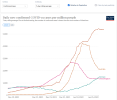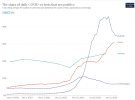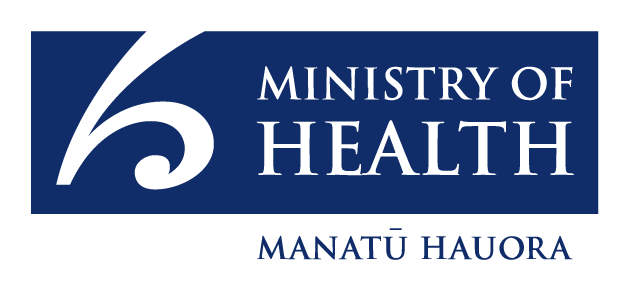"But here in our far-flung corner of the Southern Hemisphere, isolated behind our still-sealed border, we endlessly push around a hamster wheel of ever more wearying rules and restrictions.
Among them is a staggering isolation period of up to 24 days for those in households where someone has tested positive, a mandatory cap of 100 vaccinated people at public events — a devastating imposition on the entertainment industry in this, our peak summer season — and compulsory mask wearing almost everywhere, including for school pupils aged eight and up.
Places usually bustling with peak-season tourists at this time of year are little more than ghost towns, their glaciers, lakes and vineyards unloved and unvisited.
Waitangi Day, the national day of New Zealand, is approaching on February 6. But the commemorations at Waitangi Treaty Grounds, which used to attract 30,000 people annually, have been cancelled.
Sporting events have all but disappeared. While other nations watched agog as the world's top tennis player, Novak Djokovic, was deported and barred from participating in the Australian Open over his vaccination status, the most striking aspect of the story from our perspective is that the tournament went ahead at all: our equivalent, the Auckland Open, hasn't taken place for two years.
And just imagine the heartbreak for those citizens here who don't dare leave our country for fear of being unable to return.
Or for the near one million-strong population of New Zealanders living abroad who have little prospect of coming home because, to do so, they have to enter a lottery for one of a small number of hotel quarantine rooms here, with only a 12 per cent chance of being successful.
It is desperately sad to watch the confident, free society I have always loved give way to this closeted, insular one, bound by what feels like ever-more authoritarian measures with no end in sight.
To add insult to injury, we are effectively banned from testing ourselves for Covid, as happens all over the world.
Only a 'trained tester' such as a medic or a pharmacist is allowed to do the job, and anyone who imports rapid antigen tests for home use could face up to six months in jail.
This is hardly in the spirit of the liberal, laid-back New Zealand the world once knew. It is little wonder that, weary of what feels like creeping authoritarianism and a never-ending marathon of restrictions, the population is kicking back.
Make no mistake — I threw my support behind our Prime Minister's decision to close our borders back in March 2020. Along with the rest of the world, our country faced enormous uncertainty as the spectre of Covid started to unfurl across the globe.
At first, everyone believed that using our strategic advantage to isolate ourselves was a price worth paying. Sealing our border to buy time, stop a rapid spread of the disease and save lives was entirely sensible. But it must be emphasised that no one back then — Jacinda Ardern included — thought that elimination of the virus was possible.
By stealth, however, Zero Covid became the policy, and it is one that has kept our population in a state of fear about getting our way of life back.
After all, fear is a powerful political tool, and it is a tool that our government has continually deployed. It is frightening to be told by your prime minister that tens of thousands will die and, understandably, parts of the population are now permeated by the most extraordinary concern that if the borders open that's exactly what will happen.
But it seems many are losing their patience. Ardern's Labour Party, which in 2017 won nearly 50 per cent of the vote, has dropped to around 35 points in the polls. We've seen, for the first time in 15 years, the majority of Kiwis say our country is going in the wrong direction."




